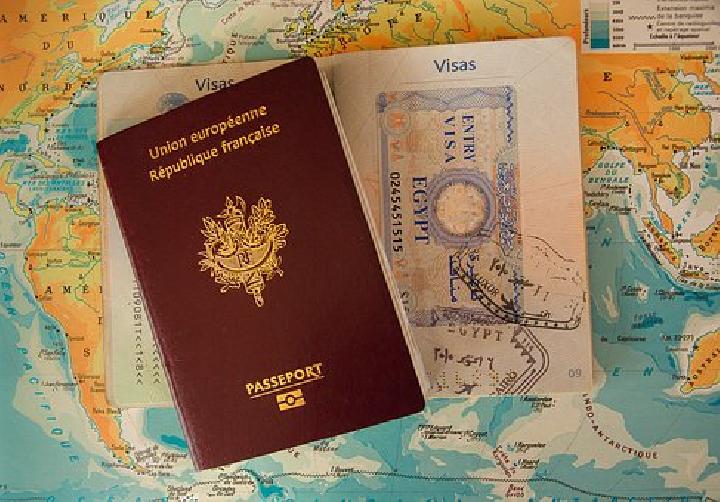
By: Fachrizal Afandi, a lecturer in the Faculty of Law at Brawijaya University, Malang Indonesia.
Indonesia's constitution separated the military from civilian politics after the fall of Suharto in 1998. But the police didn’t get the memo.
There’s a joke in Indonesia: NKRI, the widely used acronym for the republic, in fact, stands for Negara Kepolisian Republik Indonesia — “Indonesia is a Police State”. Caricatures and memes in social media show how powerful the police are in the Indonesian justice system today.
Indonesians may joke about it, but they are in deadly earnest. In the reforms that swept Indonesia following the fall of the Suharto regime in 1998, the police seem to have escaped scrutiny. Reform is not complete until the justice system is addressed.
During the 32-year Suharto regime, the army was the most powerful political institution. It could overrule the criminal justice system including the police, prosecutors, and judges to oppress the regime's political opponents.
When Suharto stepped down in 1998, the reform movement pushed to separate the military from civilian politics. In 2000, the People’s Consultative Assembly (MPR) issued two constitutional amendments that revoked military power over the police, repositioning the police force as a civilian institution. The amendments forced the military to give up its engagement in politics and its responsibility for internal security, instead assigning responsibility to the police. The effect of these amendments was that the police were promoted to the same level as the military. The police now had constitutional authority regarding law enforcement.
But the reforms led to new problems. Through the 1981 Code of Criminal Procedure, the Suharto regime controlled the criminal justice system by positioning the police as the prosecuting authority at pre-trial hearings and the public prosecutor as merely the postman. But the constitutional amendments did not regulate the relationship between the police, prosecution service, and the judiciary. This means the police have continued a relatively autonomous role in law enforcement, acting as both investigating officers and even public prosecutors who decide whether the case is prosecuted in the trial. The Indonesian police are not magistrates and are not trained in law school. Their role is to collect the evidence not to prosecute in the trial. The police operate under the belief that they lead the criminal justice process to maintain public order and security.
Despite no longer being part of the military, the 2002 Police Law upheld their military nature. Most police tasks and powers in the law were copied from the regulations concerning the military’s role in maintaining security during the Suharto era. It is unsurprising that the police have continued to apply a repressive security approach in criminal investigations instead of one that is in conformity with the rule of law.
In the end, the police were placed directly under the authority of the president in 2002. Former National Police Chief Awaludin Djamin even publicly stated that while the police reform changed its appearance into a civilian organization, the police have maintained their core military characteristics.
This strict military-like hierarchy extends to the way the police operate. A police investigator can only make an arrest or detain a suspect following an order from a superior officer. The investigator must even submit an investigation plan to the police leadership.
Like the military before them, police are immune from criminal prosecution for corruption, unlawful coercive measures, or ill-treatment of detainees during a criminal investigation. Accusations of unlawful treatment can only be addressed through the ‘pre-trial hearing mechanism’ in front of the district court before the case has started. A single judge decides on the claim and there is no recourse for appeal. Because the pretrial judge has limited time for examining the case, in practice he or she tends to examine matters only for their administrative correctness. As a result, pre-trial judges rarely decide that coercion was invalid.
Accusations of police misconduct are entirely up to police leadership to take disciplinary measures or start proceedings. According to reports by Legal Aid and Amnesty International, this regularly allows to police officers who have committed grave criminal offenses to behave with impunity.
The introduction of human rights protections into the constitution between 1999-2002 suggested that criminal proceedings would henceforth be governed by due process. However, the Code of Criminal Procedure is still in place and the early amendments to the constitution reinforced the position of the police.
During the early years, reformers did not prioritize criminal procedure, and it seems that the window of opportunity may have closed. The result is that the police have continued to dominate investigations without much magisterial oversight. Public prosecutors still shuttle cases from the police to the court without exerting influence over the investigation process, and courts are reluctant to examine police behavior during investigations.
It will not be easy to change this reality. The police will be democratic when they act as authorized by law when the laws they follow incorporate international standards of human rights, when they are accountable to authorities outside of themselves, and when they give priority to responding to the security needs of individuals. Removing the military aspects of the Police Law and adopting judicial scrutiny on police coercion would be the first step toward a more democratic Indonesian police force.
Originally published under Creative Commons by 360info™.
*) DISCLAIMER
Articles published in the “Your Views & Stories” section of en.tempo.co website are personal opinions written by third parties, and cannot be related or attributed to en.tempo.co’s official stance.























